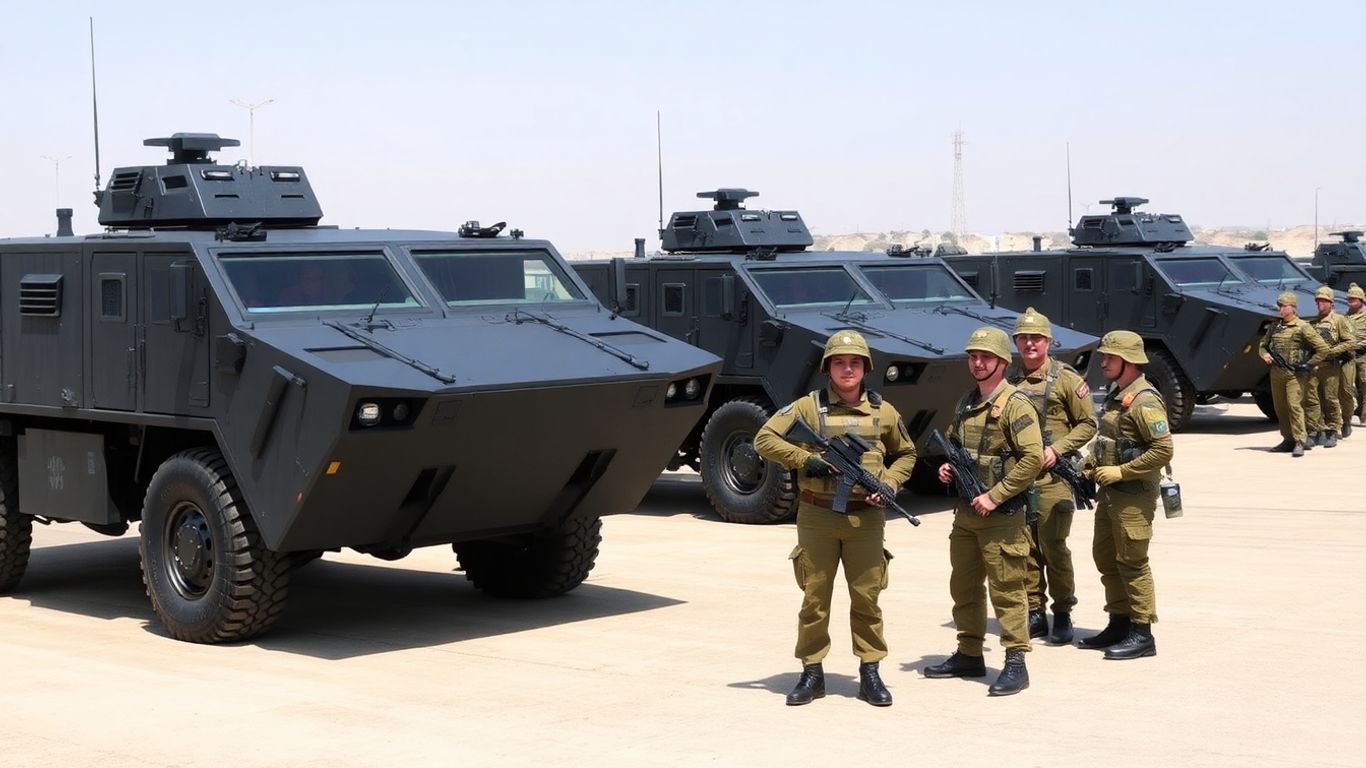North Macedonia is significantly enhancing its military capabilities through the acquisition of advanced U.S.-made equipment and active participation in multinational training exercises. Recent developments include the delivery of new armored vehicles and collaborative efforts focused on improving medical readiness and cyber defense, underscoring the nation’s commitment to regional security and NATO interoperability.
Key Takeaways
- North Macedonia received 29 new U.S.-made Joint Light Tactical Vehicles (JLTVs), increasing its fleet to 67.
- The nation is participating in NATO exercises like Immediate Response 2025, focusing on mountain warfare, medical readiness, and cyber defense.
- These initiatives reflect North Macedonia’s dedication to modernizing its armed forces and aligning with NATO standards.
Modernization Through U.S. Assistance
North Macedonia recently bolstered its military fleet with the delivery of 29 Joint Light Tactical Vehicles (JLTVs) from the United States. This significant addition, formally presented at the “Jane Sandanski” Barracks in Shtip, brings the total number of JLTVs in the Army’s inventory to 67. The handover ceremony was attended by Prime Minister Hristijan Mickoski, Minister of Defence Vlado Misajlovski, Chief of the General Staff Major General Sashko Lafchiski, and U.S. Ambassador Angela Aggeler. Prime Minister Mickoski emphasized that the acquisition is part of a broader strategy to modernize the armed forces, stating, “We will not stop here, we will continue further.”
Minister of Defence Misajlovski highlighted that these JLTVs are assigned to the Light Infantry Battalion Group, designated for NATO deployments and international missions. Further enhancing its capabilities, North Macedonia has signed seven additional contracts with the U.S. for Special Forces equipment, UAV systems, cyber defense tools, light infantry weapons, personal protection gear, and a Joint Fire Control Kit. The U.S. Ambassador described the JLTVs as a “strong and powerful symbol of your progress toward a modernized military.”
Enhanced Readiness Through Joint Training
North Macedonia’s commitment to strengthening its defense posture is further exemplified by its active participation in NATO training exercises. During exercise Immediate Response 2025, part of the larger DEFENDER 25 series, U.S. and North Macedonian forces engaged in large-scale combat training. This included specialized training such as mountain warfare, where U.S. Army Pfc. Jenifer Calzaretta shared her civilian expertise as a climbing instructor, contributing to the development of a joint mountain force.
Furthermore, advisors from the 4th Security Force Assistance Brigade (SFAB) conducted a Role 1 medical training exercise with North Macedonian soldiers. This training focused on improving combat medical readiness by ensuring all soldiers possess basic emergency medical care skills, fostering trust and interoperability among NATO allies. The exercise involved practical, hands-on scenarios, including patient assessment and casualty evacuation, simulating real-world conditions.
Strengthening Cyber Defense Capabilities
In a significant move to bolster its cyber defense, North Macedonia participated in a joint multinational cyber defense exercise as part of Immediate Response 25 in Montenegro. Service members from the Maine and Vermont National Guards, along with forces from Montenegro, collaborated with North Macedonian cyber operators. This exercise, modeled on real-world threats like ransomware and infrastructure disruption, aimed to build robust cyber defense capabilities and strengthen regional military cooperation. The integration of North Macedonian personnel within combined teams provided valuable hands-on experience in network defense, threat hunting, and incident response, marking a crucial step in enhancing national security in the digital domain.
### Key Takeaways
- North Macedonia receives 29 new JLTVs from U.S., Defence Blog.
- Vermont Soldier brings mountain expertise to NATO training in North Macedonia | Article, Army.mil.
- 4th SFAB Advisors strengthen medical readiness in North Macedonia | Article, Army.mil.
- Guardsmen, Montenegro, North Macedonia Strengthen Cyber Capabilities at Immediate Response 25 | Article, Army.mil.






